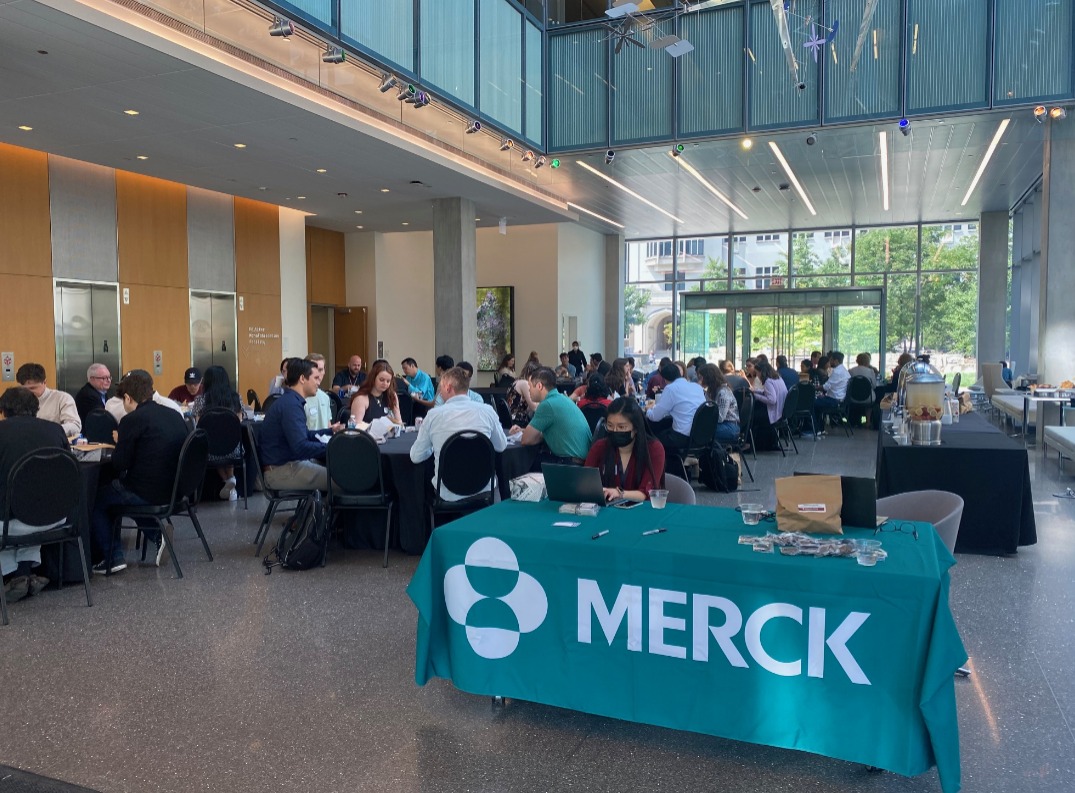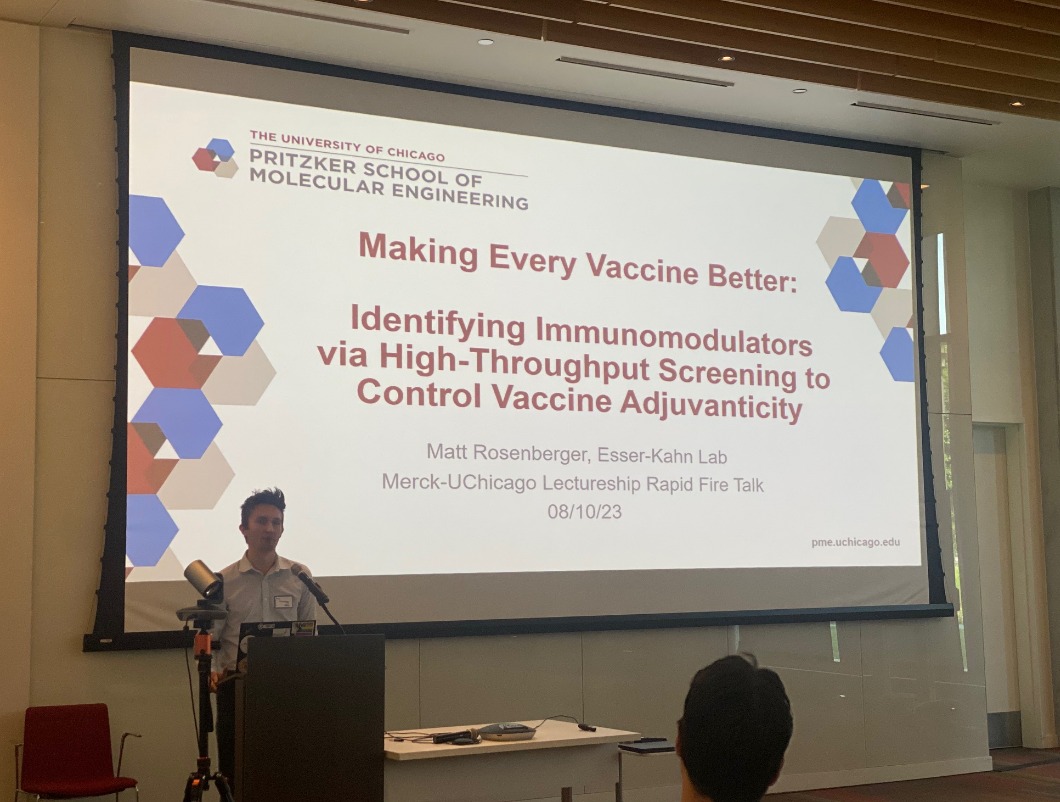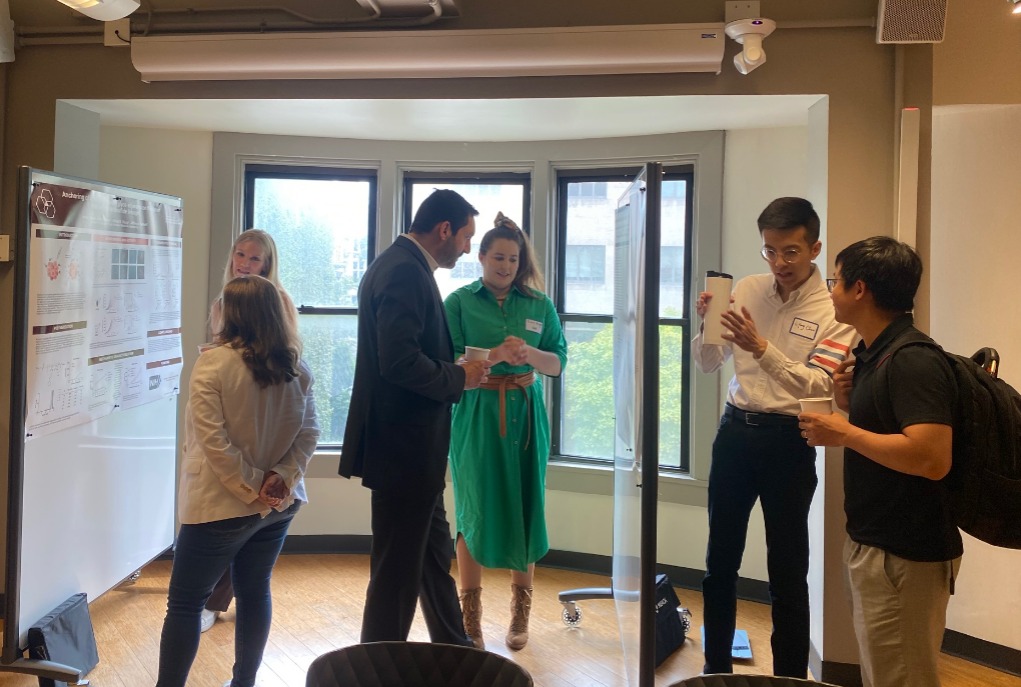Merck-University Symposium Showcases Collaboration and Science Diversity

Earlier this month, students, faculty, and industry professionals gathered on campus for the Merck-University College Lectureship Symposium, a daylong conference showcasing the diversity currently at work in both Academics and Industry. The symposium was the first meeting between Merck, a leading global Bio-Pharmaceutical company, and UChicago students since the Coronavirus pandemic upended regular schedules.
While meetings between industry and academics are nothing new, the well-attended conference was notably more ambitious than previous years, with keynote speakers, guest presentations, and network lunches filling out the day. The event was organized by UChicago professor Mark Levin, who described the meeting as a “natural synergy.”
“Merck scientists can capitalize on the creativity and scientific ingenuity of the faculty and students to help solve those problems,” said Levin.
The day began with an Academic keynote address from Timothy Jamison of MIT, whose talk “On Demand Synthesis Through the Lens of Flow Chemistry” set the tone with an appeal for interdisciplinary collaboration. Later in the afternoon, Zachary Dance of Merck delivered an Analytical R&D Keynote, sharing how companies like Merck use real-time insights to improve their processes and developments.

One highlight of the conference came when UChicago students were able to showcase and share their research interests with rapid-fire talks and poster sessions.
“I thought they were fantastic,” said Levin. “People often think of pharma companies as just an organic chemistry or biology problem, but we had speakers talking about chemistry from across the spectrum and Merck speakers talking about all aspects of the development process, transcending the usual divisional boundaries.”
The University and Merck have long had a lucrative relationship, with many UChicago grads eventually passing into industry. But this year seemed different, says Merck representative Richard Rustandi. Not only did the conference showcase research diversity, but it also exhibited the changing attitudes about the importance of where that diversity comes from.
“In the past,” said Rustandi, “industry was not considered as serious as academic research.”

Now, he sees those attitudes changing, not only in students but also in junior faculty like Levin, who recognize the importance of such partnerships.
“Pharmaceutical companies like Merck are dealing with ‘front-line’ scientific problems as they try to develop and commercialize increasingly complex drugs, and we as academics don't normally get to hear about the challenges they're facing in real-time,” said Levin.
“There's a recruiting component for Merck,” he continued, “but it also served to strengthen ties between UChicago and Merck and hopefully will facilitate additional collaborations.”